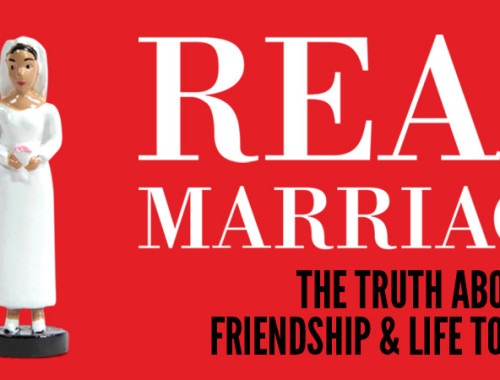This is the chapter when Stasi starts obviously contradicting what she told us on the first page; she started out assuring her readers that “this is not a book about all the things you are failing to do as a woman.” She was unable to live up to that promise even in the first chapter, but by chapter three she’s slipped into the familiar pattern of these “biblical femininity” books: she paints a picture of exactly what she thinks a “godly woman” is. Although her description is lovely, it’s also incredibly limiting.
Eve was given to the world as the incarnation of a beautiful, captivating God– a life-offering, life-saving lover, a relational specialist, full of tender mercy and hope. Yes, she brought a strength to the world, but not a striving, sharp-edged strength. She was inviting, alluring, captivating.
That’s a list of “all the things you’re failing to do as a woman,” by the way. Striving? Not a godly woman. Hard-edged? Not a godly woman. Lacking tenderness? Not a godly woman. Unalluring? Not a godly woman.
The problem is that these words, although they might seem vague, have pretty particular meanings in American evangelical culture. When Stasi and John go on at length about how “disturbing” a “striving woman” is, they’re letting their (probably) evangelical reader fill in the blanks with what they think that is, and our definition has been given to us by dozens of other “godly femininity” books.
There’s a lot of assumptions spinning around in the following pages– like how Stasi assumes that “career women” aren’t married and don’t have children on page 46. We already know how Stasi feels about feminism, and her attitude toward women who don’t conform to the American middle-class white stay-at-home stereotypically-feminine mold is usually either bemusement or hostility.
She goes on to insist that every single woman’s “deepest doubt” is about whether or not we’re beautiful, which is a claim I have mixed feelings about. Knowing my partner finds me beautiful is . . . yup. I enjoy that. A lot. I love the way he looks at me, and I’ve come to feel much more confident about my body since I met him. Knowing he finds me drop-dead gorgeous helps me to see myself that way. However, I spent the majority of my life not giving a rat’s ass whether or not I was “beautiful.” I purposefully cultivated frumpiness in order to avoid appearing beautiful (although the reasons for that are, admittedly, complicated).
And if a lot of women in America today struggle with seeing themselves as beautiful, I don’t think it necessarily follows that it’s because we were supposedly created to “be like Eve” and might have everything to do with our culture’s ridiculous and impossible-to-meet beauty standards. Have to be thin, but not too thin. Have to be one of the guys, but not masculine. Have to wear makeup, but not too much.
When she says this:
Little girls want to know, Am I lovely? The twirling skirts, the dress up, the longing to be pretty and to be seen– that is what that’s all about. We are seeking an answer to our Question . . . I wanted to be captivating. We all did.
Uhm . . . nope. I wanted to be noticed and appreciated, sure– I was constantly coming to my parents and grandparents with stories I had written, music I had memorized. I wanted my skills and my work to be recognized. If my parents had said “oh, Samantha, you’re so lovely!” instead of “oh, Samantha, you’ve worked so hard! You play that so well!” or “this is a well-written story!” I would have been . . . well, frustrated, bordering on angry.
When I was about eight, I wrote a story in a form a bit like one of Aesop’s fables, about a turtle outsmarting a fox, I think. When I showed it to my mother, her reaction– at least to me– was to be blown away. She bought a little illustrated book-kit, and helped me write it all out neatly and illustrate it and bind it. That she went to all that trouble to show me how she valued my work is still one of my best memories from my childhood.
That has nothing to do with me being lovely, and I’m a little sick that Stasi thinks that affirming our daughter’s “loveliness” is the most important thing we can do for them. I disagree. Affirming their abilities and their development is far more important, and when our culture stops seeing “beauty” as a necessary element for womanhood the better of we’ll all be.
Also, this is the third time I’ve had to write a post responding to Stasi and John’s all-consuming interest in “beauty,” and I’m getting more than a little fed up. Next week we’ll be able to talk about the ramifications the Fall has on womanhood, and it ain’t going to be pretty. There’s whole sections on “Desolate” and “Dominating” women. Whee.


